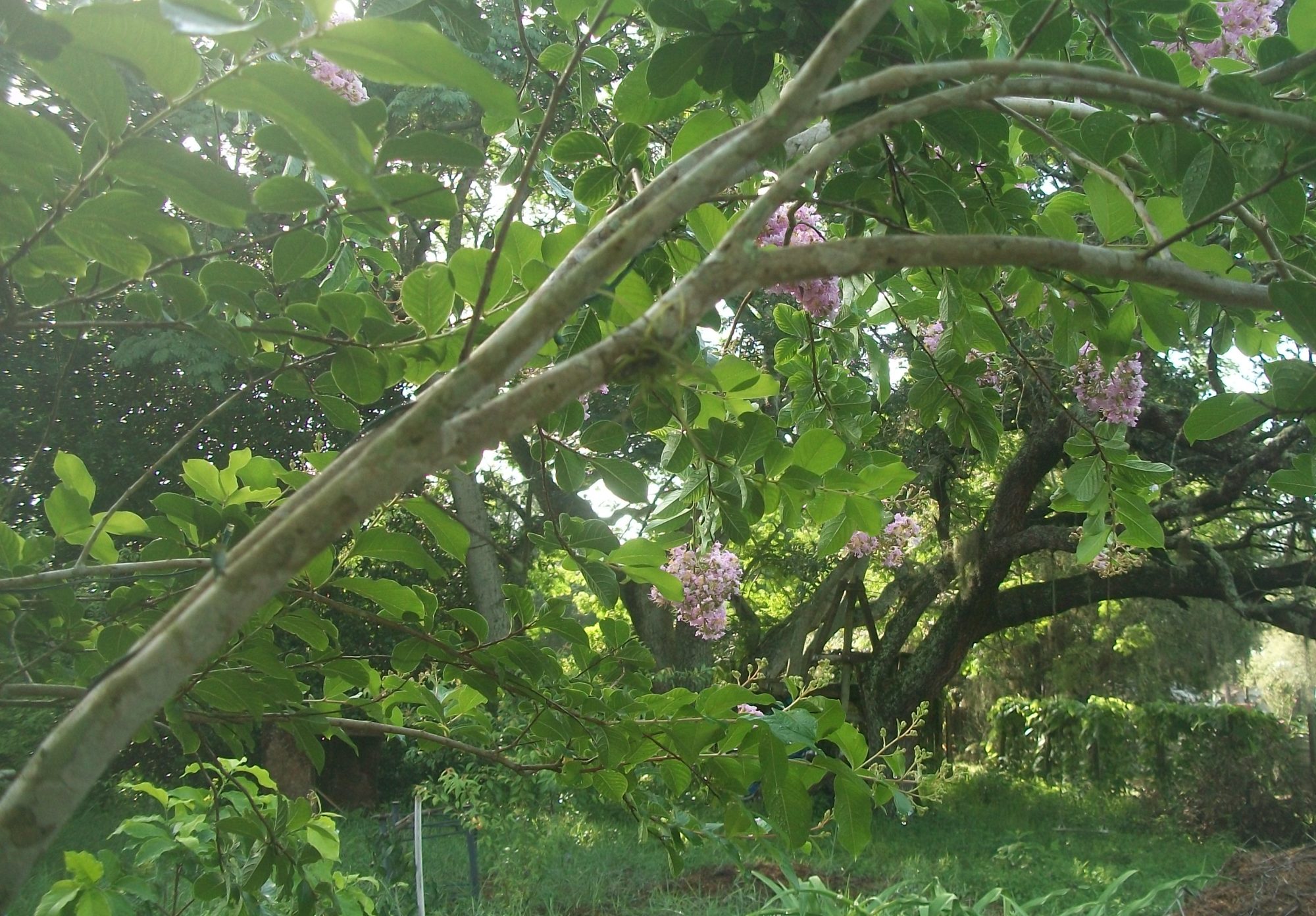
This is the time of year when loquat trees in Florida are blossoming and bearing their luscious yellow fruit. My first experience with growing loquats was in 1979 when my young husband and I and our young children lived in a house that my parents had bought but had not yet moved into, and they wanted us to take care of it for them in the interim. There were two loquat trees on that small subdivision lot, and both bore a lot of fruit. What to do with it? I loved apple butter, so I thought it made sense to make loquat butter. I did so, and in the words of my snowbird grandmother, my snowbird grandfather loved it so much that “he almost swallowed his tongue” eating it.
We bought our own home in 1985, the house where I still live, with a little over an acre of property, and we have always had loquats and have loved them. The picture above is of a seedling (tree grown from a seed, rather than asexually, such as from a cutting) tree that this year did something I have never seen a loquat tree do before. It produced a sea of seedlings underneath of it. I think I understand the mystery. Last year I heavily mulched that tree with tree mulch and the fruit that was not eaten fell into that mulch, decomposed, germinated, and grew into lovely little seedlings.
My “What is a Forest Garden” tab (page) above includes the following part:
Delight in the Serendipitous
What I love most about forest gardening is the serendipitous — the “chance” happy and beneficial — unplanned things that happen, simply by nature doing what nature does.The wind may blow in a seed of something beneficial that you never thought of growing, but there it is, growing in your forest garden and loving it there.
Whether you have a small or large forest garden, you may be surprised by the variety of wildlife that comes to visit or live there. Each living thing has its place in the ecosystem you are building. Over time, your forest garden will reach its own balance. Love it, and it will love you back and will be there to feed and delight generations not yet born.
When I found those loquat seedlings, that was an example of a serendipitous thing, and it brought me so much delight. My joy was compounded by the fact that, many times, I have tried in vain to grow loquats from seed. How hard did I try? Probably not terribly hard, but I did try, and as I recall, none of them sprouted. The serendipitous sea of seedlings this year was a gift from God, a love gift, reminding me to rest in Him, to trust Him, and He will provide.
Now, in the county where I live, we are blessed that a group of wonderful people had the vision to sing the praises of the loquat and that they gather every year to celebrate this lovely, non-native tree.
“The ONLY Loquat Festival in the United States.” That makes me so proud! Loquats sometimes get a bad rap, and I am really thrilled to live among likeminded folks who not only defend the loquat, but who extol its virtues and celebrate its beauty.
I am planning to attend this festival and to set up as a vendor to sell my seedlings. Named varieties are fine, but there really is something to be said for promoting genetic diversity.
There are so many lessons in this. Again, one lesson is to trust God who delights in us when we simply reap from the abundance that He provides because He is a loving and good Heavenly Father.
Mostly, I have a bias toward native plants, but the loquat is one of the non-natives that keeps me from being dogmatic about that. Loquat is a non-native plant, and there is an important place for non-natives in our home places and public places. In gratitude, we do well to recognize and respect the value that non-natives can bring to our gardens and to our lives.

